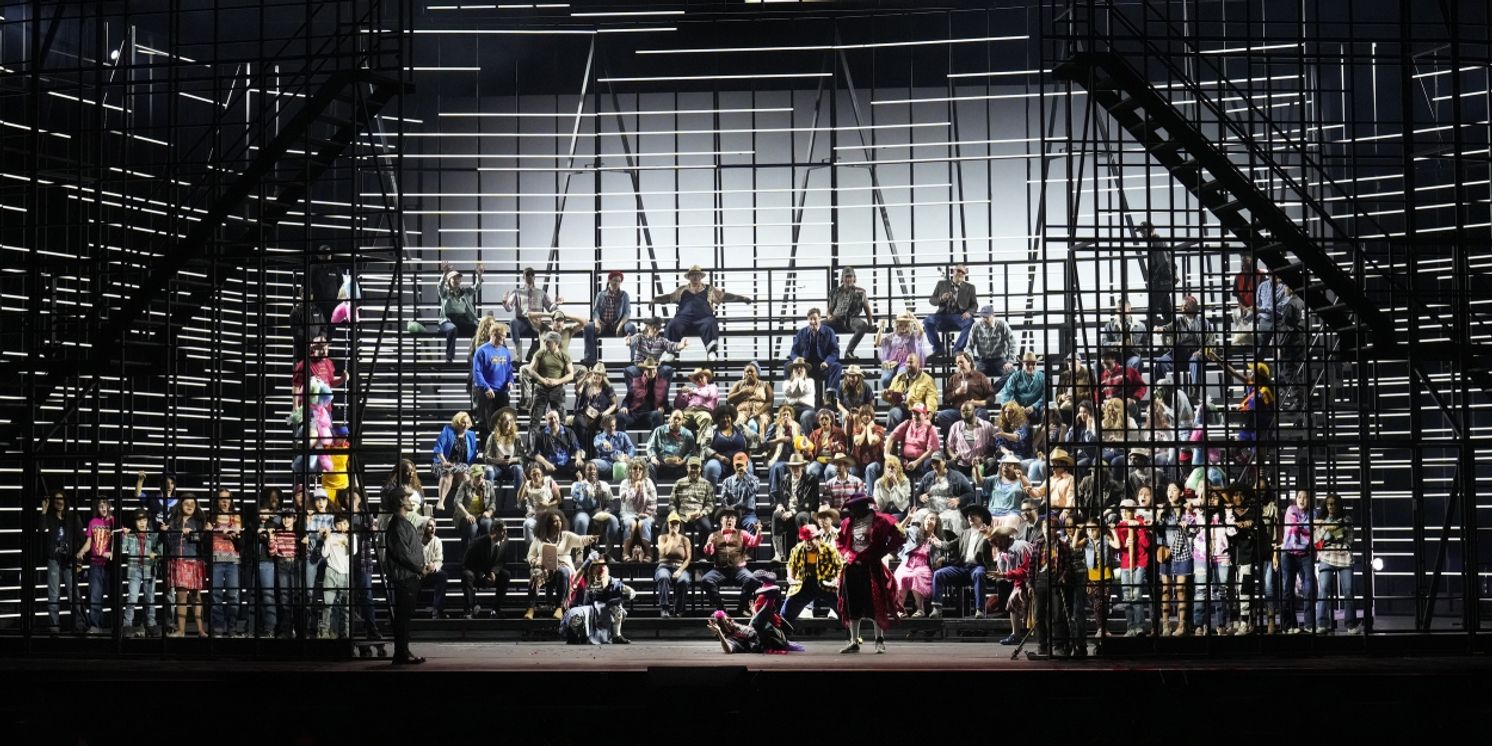Review Roundup: Critics Sound Off On CARMEN at The Met Opera
The Met celebrates the new year with a new production of Bizet's Carmen by acclaimed English director Carrie Cracknell.

What did critics think of The Met's new production of Carmen? In her highly anticipated Met debut, Cracknell reinvigorates the classic story of deadly passion with a staging that moves the action to modern day and explores themes that could not be more relevant today: gendered violence, abusive labor structures, and the desire to break through societal boundaries.
For the winter run of performances through January 27, young mezzo-soprano Aigul Akhmetshina stars in the complex and volatile title role. Akhmetshina made headlines in 2018 as the youngest artist ever to sing the title role at London's Royal Opera House at just 21 years old and now makes Met history as the youngest lead in a new production of Carmen, at the age of 27. Joining her in the powerhouse quartet of stars are tenor Piotr Beczała as Carmen's troubled lover Don José, soprano Angel Blue as the loyal Micaëla, and bass-baritone Kyle Ketelsen as the swaggering Escamillo. Daniele Rustioni conducts Bizet's heart-pounding score.
For the spring run of the production, April 25–May 25, another cast of world-class singers takes over, led by maestro Diego Matheuz who is making his Met debut. Mezzo-soprano Clémentine Margaine reprises her captivating portrayal of the title role, with tenor Michael Fabiano as Don José, soprano Ailyn Pérez as Micaëla, and bass-baritone Ryan Speedo Green.
Cracknell's creative team includes veteran set designer Michael Levine. Making their Met company debuts are costume designer Tom Scutt, lighting designer Guy Hoare, projection designer rocafilm/Roland Horvarth, and choreographer Ann Yee.
Let's see what the critics have to say!
Zachary Woolfe, NY Times: Don’t be fooled. The only truly impressive aspect of this “Carmen” is its Carmen: the 27-year-old mezzo-soprano Aigul Akhmetshina, in turquoise cowboy boots. Though this icon of the repertory is her first leading role at the Met, she seems unfazed by the pressure, singing with easily penetrating evenness and clarity, never needing to push. Her molten yet agile tone can be confiding one moment and extroverted the next, and she moves with magnetic naturalness onstage.
Michael Andor Brodeur, Washington Post: On every other front, this was a “Carmen” marked (and, at times, marred) by its many tweaks. The resetting of the story in a contemporary context could as easily be seen as an obscene indulgence of American violence or an equally obscene reflection of an ongoing (and largely unseen) crisis of abusive conditions for migrant laborers. Cracknell appears to favor the latter.
Rick Perdian, NY Classical Review: In the pit, Daniele Rustioni led a blazing reading of the Prelude, yet his direction was better displayed in revealing the lyricism and emotion of Bizet’s score. The trumpets muffed the opening bugle calls, but otherwise the orchestra performed brilliantly. The solo flute passages in the Act III prelude were so hauntingly beautiful that Rustioni stopped the action to afford the player a solo bow. The Met’s adult and children’s choruses were top notch as always.
Photo: Ken Howard / Met Opera
Reader Reviews
Videos

